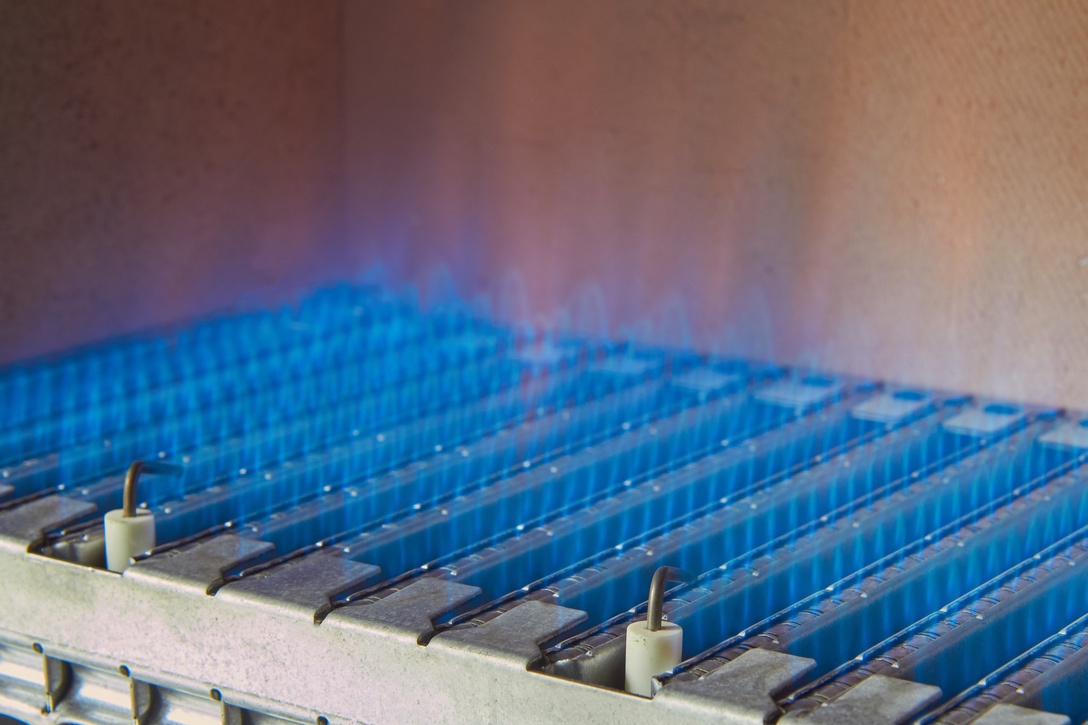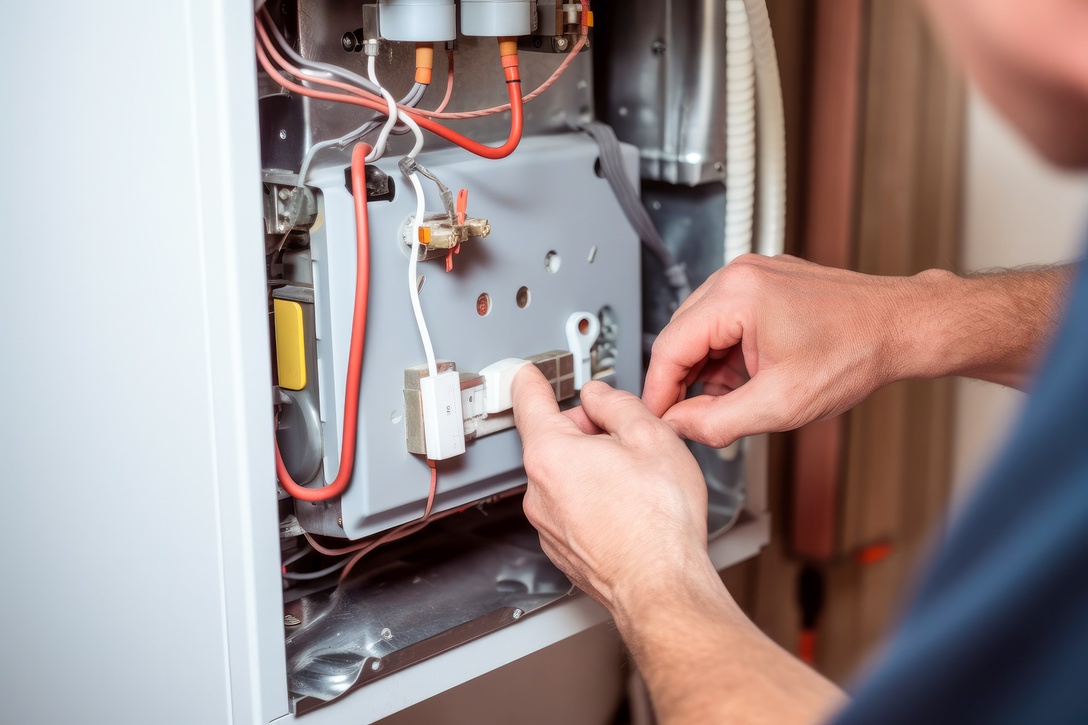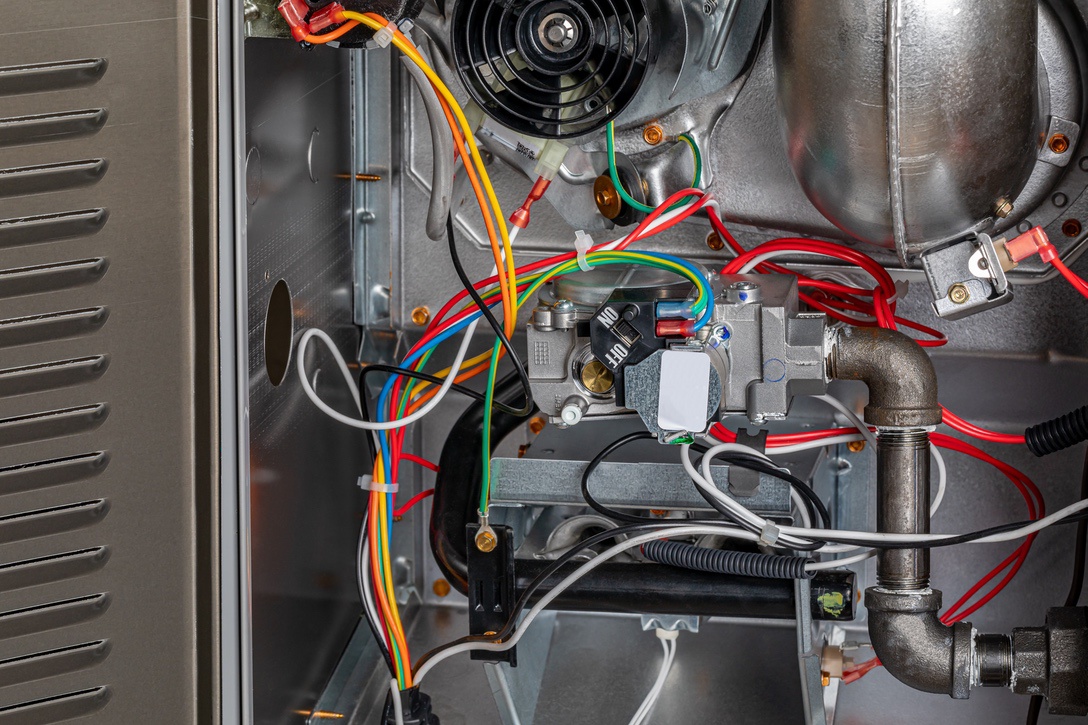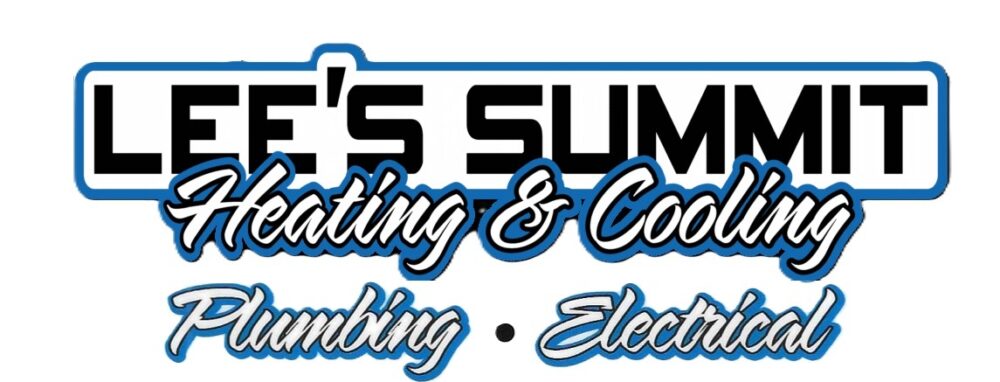Should you buy a natural gas or electric furnace if you want to stay warm and save money? Learn from a team of Missouri’s top home heating professionals about which option is best in the Show-Me State.

When you live in Missouri, you know the importance of staying warm during our state’s biting winters. But when it comes time to buy new heating equipment, should you opt for a natural gas furnace or an electric one? Both types come with their own advantages, but choosing the best one for your home requires a little research. Fortunately, we’ve taken care of that part for you.
Our team at Lee’s Summit Heating & Cooling has spent years installing new furnaces in Lee’s Summit and Blue Springs, so we know all about the differences between electric and natural gas models. Read on as we see how each kind stacks up in key areas so you can make an informed decision when purchasing one for yourself.

Energy Efficiency
Energy efficiency is the foremost consideration for most Missouri homeowners. A furnace’s energy efficiency indicates the furnace’s ability to convert energy into heat effectively, influencing both your carbon footprint and monthly energy bills.
Electric Furnaces
These models are technically more energy-efficient than natural gas furnaces. Electric models convert nearly 100% of the energy they use into heat. Their efficiency is primarily due to their simple design and operation—by using electrical resistance to create heat, they avoid losing energy by burning fossil fuels.
Natural Gas Furnaces
The efficiency of natural gas models (and other furnaces that burn fossil fuels) is measured by their AFUE or Annual Fuel Utilization Efficiency ratings. Most natural gas burning units have an energy efficiency ranging from 89-98%.
While this is less than electric models, it’s still relatively high. Modern gas furnaces have made significant strides in improving efficiency by using advanced technologies like modulating burners and variable speed blowers.

Installation Cost
Energy efficiency affects the amount you’ll pay for utilities every month, but the upfront cost of your furnace is another significant factor you need to think about. This includes the cost of the furnace itself and the expense of installing it.
Electric Furnaces
Generally, these have lower initial costs. The furnaces themselves are less expensive, and the installation process is usually simpler and less time-consuming. However, keep in mind that if your home’s electrical system isn’t equipped to handle the additional load, you may need to factor in the cost of an electrical panel upgrade.
Natural Gas Furnaces
These tend to have higher upfront costs than their electric counterparts. The costs usually come from the complexity of the installation process, which often involves sensitive tasks such as adding or adjusting gas lines.
Operating Cost
It’s important to realize that energy efficiency isn’t the only factor you’ll need to consider when calculating how much your new furnace will cost to run. Over the lifespan of your furnace, several different ongoing costs must be taken into account.
Electric Furnaces
While the initial cost of these models is lower and they technically convert power to heat more efficiently, the operating costs of electric furnaces in Missouri still tends to be higher than the costs of running gas furnaces. This is because electricity in Missouri is more expensive than natural gas.
Natural Gas Furnaces
Despite their higher initial costs, natural gas furnaces often end up being more cost-effective than electric models in the long run. Since natural gas is cheaper than electricity in Missouri, your monthly energy bills will likely be lower with a gas furnace.
Environmental Impact
While your priority for buying a new furnace will likely be cost-effectiveness, it’s also important to think about your heating system’s impact on the planet. Here are some points to bear in mind when comparing different furnace types.
Electric Furnaces
These produce no direct emissions, meaning they don’t release pollutants into your home or the environment. However, the overall environmental impact depends largely on the source of your electricity. If it’s generated using fossil fuels, your electric furnace indirectly contributes to greenhouse gas emissions.
Natural Gas Furnaces
These systems do produce greenhouse gas emissions directly, contributing to climate change. However, they are generally considered cleaner than other fossil fuels, such as coal or oil.

Maintenance & Lifespan
How long your furnace will last and what you’ll need to do to take care of it will also affect its overall cost and value. Both electric and gas furnaces should get regular heating tune-ups every year before the cooling season begins, but the amount of time and money required for this work may differ depending on which type you choose.
Electric Furnaces
These units usually have a lifespan of 10-15 years, which is shorter than gas furnaces. However, their maintenance needs are generally less intensive, potentially saving you time and money on upkeep.
Natural Gas Furnaces
Most gas furnaces have a longer lifespan, ranging from 15-20 years. However, they require more regular maintenance to ensure safety and efficiency, since natural gas lines and safety valves are sensitive and must be thoroughly checked to prevent potential leaks. This means you may spend more on maintenance costs over the furnace’s life.
When making your decision, it’s crucial to take all of the factors above into account. A cheaper initial cost might be tempting, but you must consider long-term operating costs, environmental impacts, and maintenance needs.
Frequently Asked Questions About Natural Gas & Electric Furnaces
Are electric or natural gas furnaces safer?
Both types of furnaces have specific safety considerations. Natural gas furnaces, if not properly maintained, can develop leaks, leading to potential fire hazards or harmful carbon monoxide exposure. Electric furnaces, on the other hand, can pose a risk of electrical fires if not properly installed and maintained.
However, with regular inspections and maintenance, both types of furnaces provide safe, consistent heating. As long as you’re taking care of your furnace and getting professional maintenance done at proper intervals, safety shouldn’t be an issue.
Can I switch to using an electrical furnace if my home currently uses a natural gas unit?
Replacing your natural gas furnace with an electric model is possible but involves completely replacing the unit and potentially upgrading your home’s electrical system to handle the new load. Contact our team to learn more about the costs and timelines involved with making this kind of switch—we’ll be happy to tell you what’s involved.
Are electric furnaces quieter than natural gas models?
Electric furnaces are generally quieter than gas furnaces. This is because electric furnaces do not burn fuel to create heat, eliminating the noise associated with the combustion process. On the other hand, the burners and fans in a gas furnace can produce some noise during operation—so there’s no such thing as a furnace that doesn’t make any noise at all.
Which type of furnace heats a home faster?
Typically, a gas furnace will heat a home faster than an electric one. This is because gas furnaces produce a heat flame immediately, whereas electric furnaces take some time to heat the electric coils that then warm the air.
Will an electric furnace work during a power outage?
No, an electric furnace won’t work during a power outage, as it relies on electricity to function. In contrast, a gas furnace could potentially still provide heat during a power outage, depending on the specific model and setup.
Remember, the choice between a natural gas and electric furnace depends on various factors, such as your budget, utility rates, environmental priorities, and your home’s existing infrastructure. The team at Lee’s Summit Heating & Cooling is here to help make your decision easier. Don’t hesitate to reach out with more questions or to schedule a consultation.



